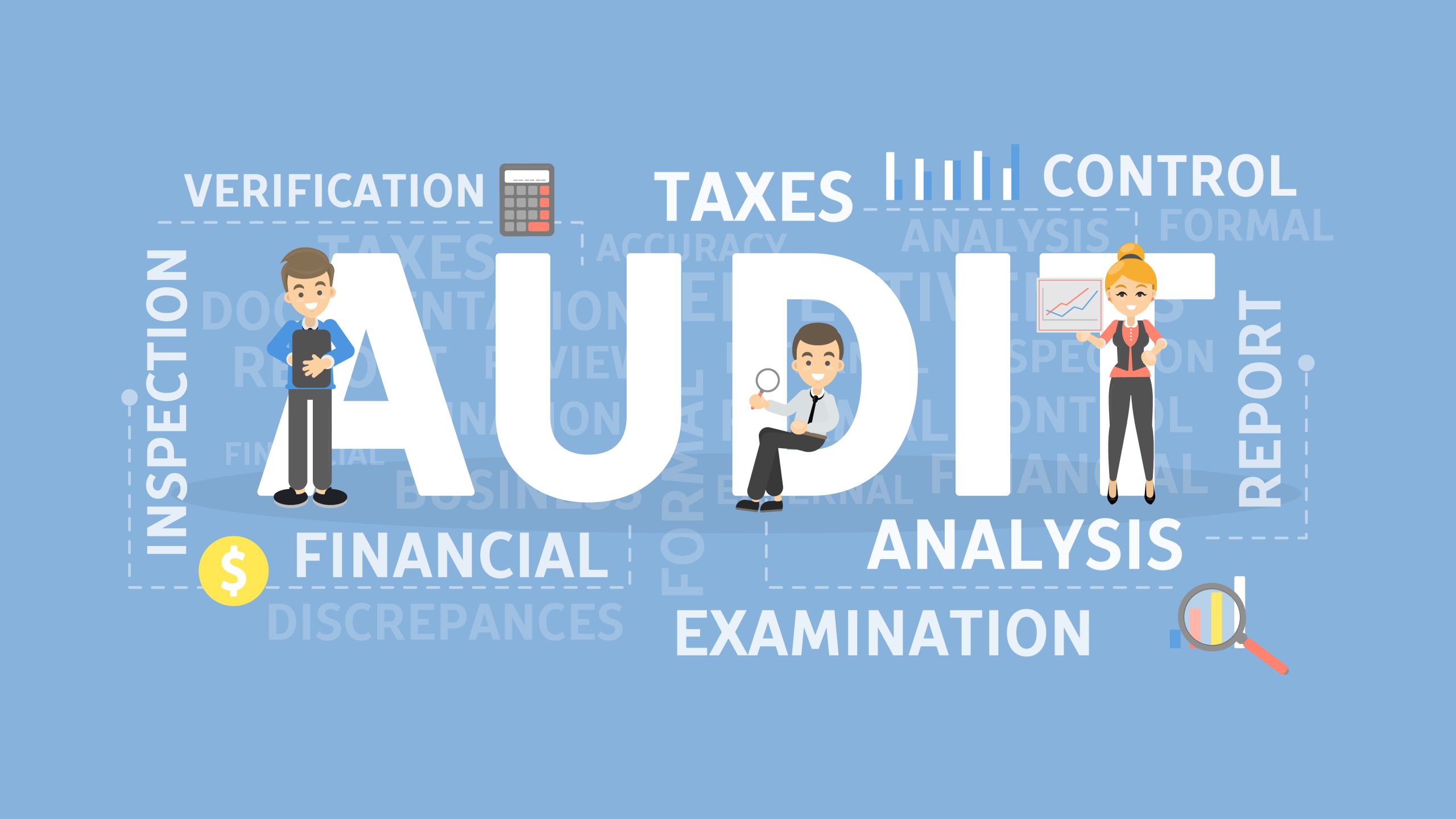How to Prepare for a Tax Audit – Essential Steps for Businesses
What is Tax Audit and why it is important for Business establishments?

-
Ensures Compliance with Tax Laws
Businesses can prevent penalties by using the system to follow income tax regulations as well as GST and TDS rules.
-
Prevents Legal Consequences
Financial data errors can trigger penalty-based financial penalties together with official warnings and even legal consequences.
-
Improves Financial Transparency
Professional financial records enable superior business decisions during operation.
-
Avoids Penalties and Interest
The failure to follow tax rules will result in penalties that may reach 0.5% of turnover or Rs. 1.5 lakh depending on which value is smaller.
-
Enhances Credibility
When investors and lenders view a company as having no tax violations they will have higher trust and reputation for the organization.
Do you want to know more about our hihellohr Software?
Types of Tax Audits in India
Transfer Pricing Audit
- Businesses that hold international transactions with related entities need to apply this requirement.
- The process validates that all transactions meet Income Tax Act requirements regarding transfer pricing regulations.
GST Audit
- Under Income Tax regulations every business needs an audit when their annual turnover passes the ₹5 crore threshold.
- A proper GST audit verifies that tax payments and returns as well as input tax credits are accurate.
Statutory Audit
- Required under the Companies Act, 2013, for private and public companies.
- An auditor independent of the business organization verifies financial statements.
Income Tax Audit (Section 44AB)
- According to the Income Tax Act, all types of businesses must conduct this audit when they meet these conditions
- Both digital transaction businesses and all other businesses must meet or exceed ₹1 crore turnover for income tax audit compliance.
- Professional income exceeds ₹50 lakh.
Special Audit
- A tax authority orders these audits when they have evidence of either tax evasion or misreported information.
- An auditor from a professional background receives their assignment through direct government appointment.
Process of Tax Audits in India
Selection for Tax Audit
- Tax authorities select businesses for audit through multiple criteria which include specific revenue thresholds and filing inconsistency reports and randomly chosen entities.
- The tax audit procedure starts after selection occurs where businesses need to organize themselves for financial document evaluation by tax auditors.
Notification by Tax Authorities
- The Income Tax Department along with GST authorities transmit official notifications that notify businesses about their audit requirements.
- Audited companies will find the necessary details concerning the audit process along with document deadlines within this official tax directive.


- To proceed with a tax audit businesses need to send every important document consisting of income tax returns and financial statements alongside bank statements and GST returns.
- The auditors need appropriate documentation to perform their verification process on business tax filings together with transactions.
- Auditors examine financial records along with implementing tax law compliance checks to establish proper tax payments by the business.
- The audit function verifies the business maintains precise records which adhere to applicable tax regulations.
- The auditor verifies the audit by presenting findings about identified discrepancies and non-compliance as well as errors revealed throughout the examination process.
- The business typically needs to fix discovered problems as well as supply additional clarification when problems appear during audits.
- The auditor finishes the final audit report by conducting an assessment of complete records while addressing all discovered inconsistencies. The document presents the results of the audit assessment together with a confirmation of compliance requirements.
- The tax authority receives formal audit documentation through the submission of the final report.
- The business needs to take necessary actions based on audit findings to resolve discrepancies including payments of due taxes or suitable legal remediation.
- The resolution of conflicts through audit procedures stops both fines and connected legal actions from occurring.
- The official audit closure occurs after all audit concerns receive responses and necessary payments along with clarification requirements are complete.
- Operation without additional tax inspection remains feasible for the business.
What to make sure before you enter the world of Tax Audit
-
Understand Tax Audit Applicability
To avoid having to comply with tax audit you must verify that your business meets the revenue thresholds mentioned in Section 44AB of the Income Tax Act. The requirement for tax audit follows when your company operates beyond ₹1 crore (and beyond ₹10 crore for digital transactions).
-
Maintain Accurate Financial Records
All financial records need to be checked for accuracy alongside being up-to-date before the audit begins. Internal records necessary for audit include profit and loss declarations together with balance sheets and cash flow reports alongside all transaction documents like invoices and bank statements and stock ledgers.
-
Reconcile All Accounts
Regular account reconciliation lets you find and correct discrepancies in your accounting records. Your bank statements should match accounting records while the records for GST and TDS should be fully maintained to prevent any inconsistencies from showing up in income and expense statements.
-
Ensure Compliance with Tax Laws
Your business needs to follow all rules established by income tax and GST and TDS institutions. The audit success depends on prompt tax payments accompanied by exact return submissions under all required statutory rules.
-
Be Prepared for Document Requests
All vital business documents including previous reports and returns together with financial statements must be available for quick access including previous audit results, income tax returns, contracts, invoices, bank records, TDS submissions, and GST statements. A well-organized system will make it simpler to conduct an audit.
-
Create a well-designed internal auditing program
Conduct internal audits that reveal differences and non-compliant areas before beginning a tax audit process. Regular internal audits allow you to detect and correct mistakes which then improves financial record quality and prevents penalties and investigative actions from authorities.

How to Reduce the Risk of a Tax Audit
File Taxes on Time
Reporting your taxes past the deadline will trigger multiple penalties and inspections.
Ensure Accuracy in Returns
Malfunctions and inconsistencies need to be prevented in both GST and income tax reporting systems.
Use Automated Accounting Software
The software supports both flawless bookkeeping records and precise financial documentation.
Regular Internal Audits
Regular internal audits must be performed to identify problems that authorities would uncover so appropriate corrections can be made.
When is the perfect time to do a Tax Audit?
After the Financial Year Ends
- When :- Tax audits normally take place after the financial year ends on March 31st.
- Why :- The reporting process enables businesses to produce all financial records which include profit and loss statements along with balance sheets to file tax documents for an entire fiscal year.
After Internal Audits and Financial Reconciliation
- When :- The company should conduct its tax audit following internal examination and financial reconciliation procedures.
- Why :- An internal audit becomes important since it identifies and fixes any record discrepancies thus promoting a smooth tax audit process.
Well in Advance of Tax Authority Deadlines
- When :- Execute the audit process before the deadlines that the Income Tax Department or GST authorities have established.
- Why :- Plenty of time exists for addressing discovered audit issues to provide required document submissions before deadlines.
Before the Start of the New Financial Year
- When :- The tax audit process should finish before starting the new financial year begins.
- Why :- Performing the audit before the year’s end enables the business to shut the financial records of the current year and start fresh next year without unresolved tax issues.
During Periods of Low Business Activity
- When :- Carry out tax audit work during times when your business operations are slow such as off-season times or after main operational periods.
- Why :- The business operations stay uninterrupted while you collect and deliver necessary audit documentation to the auditors throughout the assessment period.
Conclusion
Through appropriate preparation, businesses will experience smooth auditing procedures while avoiding the stress associated with tax audits. A successful audit depends on following three essential steps including the maintenance of precise records, internal reviews, and professional consultation, and ensuring compliance. Proactive actions protect businesses from penalties and establish solid financial operations while they satisfy all Indian tax requirements.
A qualified CA should be sought when your business faces a tax audit to guarantee smooth and complication-free audit tasks.
Related Articles:




